When you’ve landed a tech job offer, congratulations are in order! But before you sign on the dotted line, it’s crucial to evaluate the tech job offer compensation package carefully. A high salary is great, but it’s only part of the equation—bonuses, stock options, employee benefits, and work-life balance all contribute to the total compensation package.
At Technical Talent Group, we help tech professionals like you navigate job offers and understand the full scope of employment compensation, ensuring you make informed career decisions. Here’s what to look for before accepting your next technology job offer.
1. Base Salary in a Tech Job Offer Compensation Package
The fixed salary is the most straightforward element of your total compensation package. However, it’s crucial to ensure it aligns with industry pay standards and your experience level.
According to our latest salary research, software engineers in the U.S. earn an average salary ranging from $90,000 to $150,000, depending on location and experience. Before accepting an offer, use resources like Glassdoor and PayScale to compare wages for your role in your specific area. Also, consider the cost of living—a $100,000 salary in San Francisco does not go as far as it does in Austin or Denver.
2. Bonus Potential in Tech Industry Compensation
Many IT job offers include performance-based incentives that boost your total pay package. These bonuses can be tied to company success, team performance, or individual achievements.
According to Robert Half, 70% of tech professionals receive an annual bonus, which can range from 5% to 25% of their base salary. Be sure to clarify whether bonuses are guaranteed or discretionary and how they are structured to understand your full job compensation package.
3. Equity or Stock Options as Part of a Technology Job Offer
Equity compensation can be a lucrative job benefit, especially in startups. A 2023 report from Archer Investment Management found that nearly 85% of tech employees at startups receive some form of stock-based compensation. However, understanding vesting schedules is key—most companies require you to stay for four years to be fully vested.
Also, ask whether the company is public or private. Stock-based incentives in a public company can be liquidated more easily, while private company shares might not have immediate value unless the company is acquired or goes public.
4. Employee Benefits in a Tech Job Offer Compensation Package
A comprehensive benefits package significantly impacts your overall employee compensation. According to App Academy, 92% of tech professionals prioritize perks like healthcare, retirement plans, and paid time off when evaluating a technology job offer.
- Health Insurance: Check premiums, deductibles, and out-of-pocket expenses. Does the plan cover dependents?
- Retirement Plans: A 401(k) with employer matching is a valuable benefit. Some companies match up to 6% of your salary.
- Paid Time Off (PTO): The industry standard is 15–20 days per year, but some tech companies offer unlimited PTO policies.
- Flexible Work Arrangements: Remote and hybrid work options are increasingly common. A 2023 McKinsey report found that 87% of tech employees prefer roles with remote flexibility.
5. Professional Development in a Tech Industry Compensation Package
Continuous learning is essential in the IT sector, and companies that invest in their employees’ growth stand out.
- Educational Reimbursement: Some companies offer $2,000–$5,000 annually for professional certifications and courses.
- On-the-job Training: Look for roles that provide access to platforms like Udemy, Coursera, or LinkedIn Learning.
- Mentorship Programs: A study by Deloitte found that employees with structured mentorship programs are 20% more likely to stay at a company long-term.
6. Job Security and Stability in Tech Job Offer Compensation
Before accepting a technology job offer, research the company’s financial health. Startups can be exciting but come with higher risk.
According to CB Insights, 38% of tech startups fail due to running out of cash. If you’re considering a startup, ask about funding rounds, profitability, and future growth plans to assess long-term employment stability.
7. Work-Life Balance as Part of a Tech Job Offer
While not always listed in a job benefits package, work-life balance is a major factor in job satisfaction.
- Work Hours: Some companies have a culture of long hours and intense deadlines, while others promote a healthy work-life balance.
- Remote or Hybrid Work: As mentioned earlier, nearly 9 out of 10 tech employees prefer positions that offer flexible work options.
- Company Culture: Glassdoor and Blind can provide insights into employee reviews about work-life balance and job satisfaction.
8. Relocation Assistance in a Tech Job Offer Compensation Package
If your new position requires you to relocate for a job, ask about moving assistance benefits. According to Robert Half, 60% of companies provide some form of relocation package, which may include:
- Reimbursement for moving expenses
- Temporary housing support
- Assistance with finding a new home
Weighing the Entire Tech Job Offer Compensation Package
When evaluating a tech job offer compensation package, it’s essential to consider more than just salary. Stock options, performance bonuses, benefits, and work-life balance all play a critical role in job satisfaction and career growth.
At Technical Talent Group, we’re here to guide you every step of the way—from understanding employment compensation packages to negotiating job offers. If you’re ready to take your career to the next level, reach out to us today!

